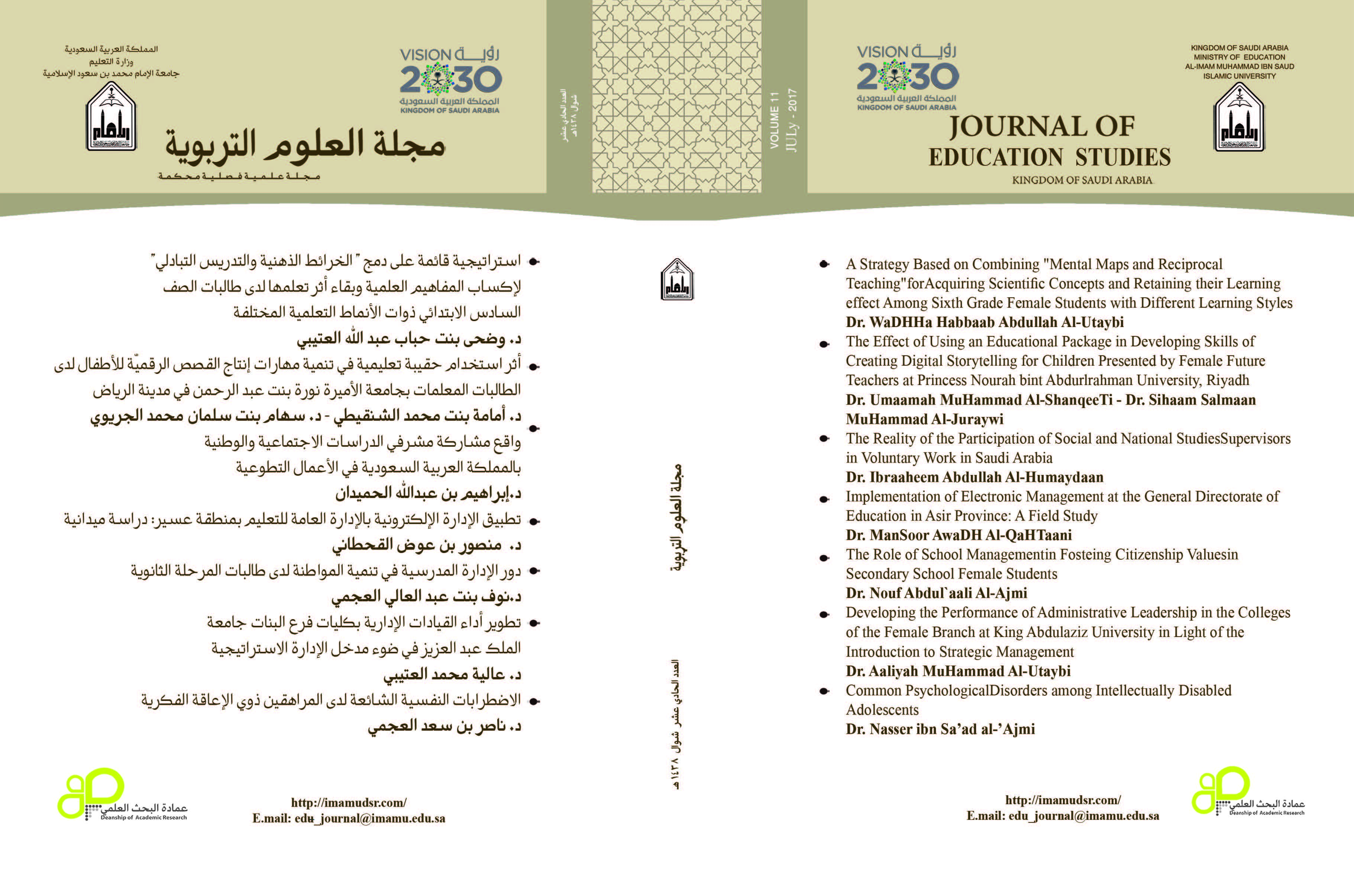Developing the Performance of Administrative Leadership in the Colleges of the Female Branch at King Abdulaziz University in Light of the Introduction to Strategic Management
Abstract
The study aims to provide a set of recommendations and proposals to improve the performance of administrative leadership in the colleges of the femalebranch at King Abdulaziz University in Jeddah in light of strategic management. This is done through monitoring the performance of administrative leadership in the colleges of the female branch at the University in light of the introduction to strategic management. In order to achieve the goal of the study, the researcher designs a questionnaire tool directed to the total community in the colleges of the femalebranch, including deputy-deans of the colleges, supervisors of the departments and supervisors of the units. The questionnaire consists of two sections. The first section contains the basic data which identify the characteristics of the sample participants. The second section includes four themes pertaining to the types of administrative leadership, methods of selection, their training, and the use of modern technologies by the leadership. The researcher follows the descriptive approach, and uses statistical analysis program(SPSS) in order to find frequencies, percentages, relative weights of the study sample responses, means, standard deviations in all themes of the questionnaire, and the total score of the questionnaire according to the variables of the study (administrative job, academic rank, years of experience). In addition, (One-Way ANOVA) program is used in order to detect differences between the sample responses on the four themes of the questionnaire and thevariables of the study. The results of the study show that the administrative leaderships in the colleges of the female branch at the University donot work on keeping pace with modern administrative trends. Moreover, they are not selected according to the seniority of the academic degree in the university, nor according to research and academic studies conducted by faculty members. The leadership does not encourage active learning through technological innovation, and still maintains the traditional methods in job performance. However, it recognizes the importance of the feasibility of training programs where training needs of the University staff vary and increase. There are no statistically significant differencesaccording to the responses of the study sample attributed to the variables (administrative job, academic rank, years of experience). The study concludes with a set of recommendations and procedural proposalson top of which developing the skills of administrative leadership with respect to thinking skills in general and strategic thinking in particular, as strategic thinking is the essence of leadership and strategic management, through specialized training courses. Administrative leadership must be encouraged to take initiative and calculated risk, and quit the traditional frameworks in job management. They must also be given the chance to be vocationally, academically and administratively creative though building organizational culture incubating creativity and innovation.




